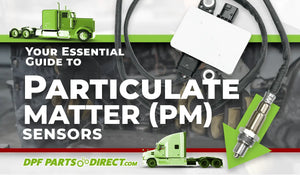California is rolling out new regulations that may clean up diesel emissions, but at what cost to American households?
The state’s Clean Truck Check program, now entering enforcement, imposes strict emissions testing and monitoring on every diesel truck over 14,000 pounds operating in California, including those registered out of state and even some motorhomes. Under the guise of fighting pollution, this rule risks becoming a national price accelerator by raising transportation costs, choking off supply chain efficiency, and burdening the small businesses that drive America’s economy.
California calls it environmental progress. But for families, truckers, and small businesses across the country, it may feel more like a stealth tax that most of us didn’t vote for.
Regulatory Overreach or Climate Necessity?
Launched by the California Air Resources Board (CARB), the Clean Truck Check program requires freight trucks to undergo regular emissions testing, remote diagnostic tracking, and compliance reporting to remain road legal in the state. The rule applies even to trucks from all other states, such as Texas, Arizona, or Georgia, if they pass through California’s borders.
Critics warn this is yet another example of California using its market size to set de facto national policy with zero Congressional oversight. “California’s freight rules are spilling into the rest of the country,” said one logistics industry executive. “And working families are about to pick up the tab.”
Testing Frequency and Inspection Costs
Here’s how CARB’s test regime breaks down:
- 2013 and newer vehicles: twice-yearly OBD emissions tests using approved telematics devices or scanners. After three years, the frequency increases to four times a year. Results must be submitted to CARB.
- Pre-2013 engines: twice-yearly smoke opacity tests (J-1667 compliant) plus a visual inspection for tampering.
- California-registered RVs (motorhomes): subject to annual or semi-annual testing depending on engine type.
Inspection prices range from $150 for a single OBD test to $199 per service, including on-site testing and submission, with some bulk discounts for fleets. That adds up to $300 to $400 annually per truck, on top of the $31 compliance fee and lost time costs.
Economic Fallout From Truck Cab to Checkout Counter
The trucking industry already runs on razor-thin margins. With compliance costs per vehicle potentially reaching $2,500 to $4,500 per year for inspections, telematics, repairs, and testing, those costs will flow downstream.
Consumers will feel it in the form of:
- Higher grocery bills, as refrigerated diesel trucks move produce and meat daily
- Slower deliveries and reduced availability, since smaller carriers may pull out of California routes
- Inflated construction costs, because every material moved by truck gets more expensive
California’s ports handle nearly 40 percent of all U.S. imports. If fewer trucks operate in-state, expect shipping bottlenecks and a return to the kind of delays and price spikes seen during the COVID-era supply crisis.
Small Operators Squeezed
While corporate giants like FedEx or Amazon can absorb these rules, independent truckers and small fleets cannot. Many can’t afford the retrofits, inspection downtime, or consultant fees.
“This isn’t about emissions. It’s about pushing small operators off the road,” said Ramon Flores, a Phoenix-based owner-operator. “They’re regulating us out of California one sensor at a time.”
That squeeze is fueling consolidation in an industry that already suffers from limited competition and rising barriers to entry.
Regulatory Whiplash and the Death of Deregulation
The Clean Truck Check reverses the Trump administration’s efforts to unify emissions policy. Trump revoked California’s Clean Air Act waiver in 2019. The Biden administration reinstated it in 2022.
Now, California is setting emissions policy for all 50 states. Legal challenges are already mounting. Conservative state attorneys general argue the rule violates interstate commerce protections and places unconstitutional burdens on out-of-state businesses.
Inflation Risk, A Regulation-Fueled Price Hike
If the costs are passed along fully, California’s emissions crackdown could drive up the price of:
- Food and fuel.
- Rent, due to pricier building materials.
- Household goods and electronics.
This is no longer just a red-state vs. blue-state issue. It’s a nationwide inflation warning. When Sacramento regulators dictate how diesel trucks operate, filling your fridge in Ohio gets more expensive.
The Bigger Picture, Who’s Really in Charge?
CARB’s Clean Truck Check is part of a broader agenda to ban diesel truck sales by 2036 and mandate 100 percent zero-emission fleets by 2045. But while this plan moves forward, states and industries that depend on diesel logistics are being shut out of the conversation.
This isn’t just about trucks. It’s about how far one state can go in reshaping the national economy under the banner of climate policy.
The road to decarbonization shouldn’t be paved with red tape. And it shouldn’t come at the expense of working families.










Comments 0